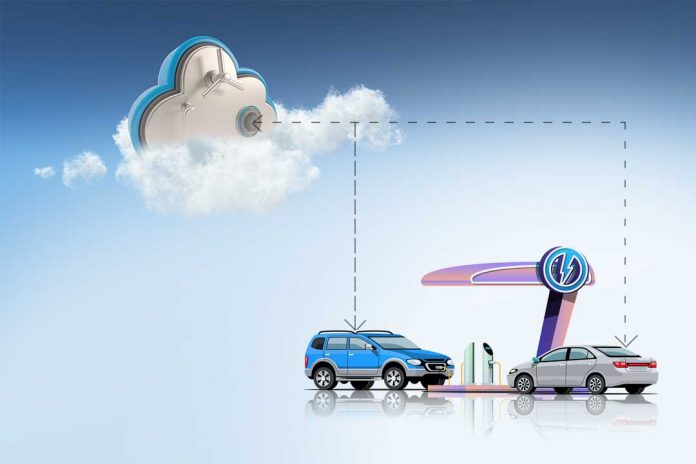One such game-changing development is how the IT assets of these businesses are being used to revolutionize data recording, storage, processing, and the associated expenses.
What is Cloud Computing?
Cloud computing is a computer model in which resources, such as data storage and processing power, are supplied on a pay-as-you-go basis over the internet (the “cloud”). Instead of storing and processing data on local servers or personal devices, companies and individuals can access these resources over the internet, allowing them to scale up and down as needed without needing costly on-premises infrastructure.
Cloud computing allows clients to access various services and resources on an as-needed basis, such as data storage, processing power, software applications, and analytics. This can be less expensive and more efficient than maintaining in-house infrastructure, allowing businesses and organizations to focus on their core skills rather than managing complex IT systems.
How is the Automotive Industry Changing Due to Cloud Computing?
Many businesses’ practices have shifted due to moving to the Cloud, resulting in increased innovation and company continuity rates. The digital and intelligent revolutions have sparked a cloud computing trend, making even mission-critical technologies easier to implement and use.
This can be seen almost anywhere, from high-tech gadgets to a bird’s-eye view of a factory’s overall operations. One of the key benefits of cloud computing is that resources may be accessed on demand. A few of how cloud computing has aided the growth of the automotive industry are as follows:
Cost Reduction:

In tandem with ancillary software in the automobile sector, the Cloud contributes significantly to cost reduction. The makers must ensure the upkeep of any on-site IT hardware. Manufacturers also incur labor and electricity usage costs on top of regular maintenance expenses. In contrast, a Cloud service provider provides all the necessary hardware and is responsible for regular upkeep, monitoring, and updates. Manufacturers can reap the benefits of consumption-based pricing models by adopting cloud-based innovative automobile technologies. This allows factories to scale up or down in response to changes in demand while only having to pay for the resources they use.
Better Collaboration:

There is excellent internal and external communication in the automotive business, particularly between the makers and the many distributors and manufacturers. Sometimes it’s challenging to work together in the automobile industry because companies have different methods of establishing B2B communication.
But now, many businesses can share resources on a single cloud platform through group efforts because of the Cloud’s built-in collaboration features. You won’t need to work on creating your collaborative tools.
Complex Infrastructure:

Both technological and administrative tasks in the automotive industry are complex. The automotive sector has several complex components, including high-level engineering jobs, analytics, and extensive dealer networks, which necessitate scalable solutions to provide continuous operations and reliable back-end support. There may be times when you require more space or materials but less time to make things happen. The Cloud solves these problems efficiently.
Safe Environment:

One of the crucial features of cloud computing is its ability to keep data secure. Cloud service providers safeguard customer data by creating frequent backups. Consequently, the cloud environment saves money, which could be a massive loss in the event of any severe system breakdown.
Provide Internet of Things (IoT) Facility:

Telematics and the Internet of Things (IoT) has been increasingly important in the automotive industry in recent years, and this is another area where cloud computing has proven useful. It helps to maintain digital connections or to keep things linked.
Users’ mobile phones can now serve as a cryptographic key to unlock their vehicles and provide energy through the Internet of Things. Because the system’s success depends on collecting massive amounts of statistics, the Internet of Things (IoT) might serve as the source of information, with the Cloud serving as the final destination to preserve it.
Smart Automotive Cloud Solutions and Applications:
By 2022, the automotive cloud-based solutions market is expected to reach USD 66.95 billion in sales. There are benefits to running a business in the Cloud. Connected vehicles, self-driving cars, shared mobility, deeper customer insights, and digital manufacturing rely heavily on the Cloud. Witness the revolution that cloud-based automotive solutions bring about.
Customer Insights:
Any automotive company may benefit from the vast array of automotive cloud services provided by cloud technology. Companies may also leverage the cloud’s specialized big data and analytics capabilities to gain the most comprehensive consumer insights for building automotive-specific solutions.
Connected Vehicles:
A “connected vehicle” is any truck, bus, or car that can communicate with other devices in its immediate area using the internet. Internet of Things technology is the backbone of today’s connected car ecosystem. This enables them to communicate with the guests’ devices and obtain the latest software updates. Furthermore, data from the vehicle can be gathered and transmitted.
Electric Vehicles:
It’s impossible to overstate the impact of cloud computing on every industry and market. The technology has made feasible and problem-solving systems accessible to every company that wants to use them. The market for electric automobiles is the same. Electric car sector players may now install their systems in hybrid and private clouds thanks to advancements in cloud technology.
Cloud Computing & Automotive Industry
The automotive industry can benefit from the comprehensive approach to business that cloud computing provides. Original Equipment Manufacturers have begun rethinking their products from the ground up, including the design, production, and, most crucially, the user experience.
Manufacturers already present in the automotive industry can benefit from Cloud Computing by reducing storage costs and increasing the efficiency with which they design and produce vehicles. As data storage capacities improve at lower costs and technology becomes more widely available, the innovation process accelerates, leading to an increase in the number of unique products and services on the market.
Conclusion
The Cloud allows automotive businesses to concentrate on core operations without worrying about maintaining and monitoring on-premises infrastructures. Recent developments have solidified the Cloud’s position as the future of the automotive industry.
A company’s level of cloud expertise will be the essential factor in determining industry winners and losers over the next few years. Take your company to new heights by leveraging the Cloud’s adaptability, efficiency, and cutting-edge solutions.
Frequently Asked Questions:
- How Is The Automotive Sector Being Transformed By Cloud Computing?
Autonomous vehicles rely on constant data transfer, supported by automotive cloud systems that guarantee reliable connectivity. As a result, cloud platforms are enhancing autonomous vehicles’ reliability, effectiveness, and safety. - What Ways Does Cloud Computing Support The Expansion Of The Automotive Sector?
When it comes to the use of cloud technology, the auto sector is ahead of the curve. Several automakers and IT companies harness data to provide end-to-end software solutions for their customers. Collaboration on the Cloud, AI, and AR are all examples of the latest technology. - What workloads can I send to the cloud?
Almost every job can be moved to the cloud, but that doesn’t mean it always should. There is usually a lower total cost of ownership (TCO) for large, monolithic programs that operate continuously and have generally stable and predictable loads on premise.
Also Read:
- AECC Summit 2022: OEM, MNO, and Cloud Connected Vehicle Services Leaders to Present
- NavInfo Europe and Tencent Cloud Enhance Automotive Cybersecurity
- IoT Market is Witnessing a Notable Growth of USD 421.28 billion at a CAGR of 32.95%
- WiTricity To Provide Industrial Wireless Charging Applications Through Global License Agreement With Wiferion
- Elevāt and Cummins Collaborate to Deliver Next Generation IoT- Connected Services


